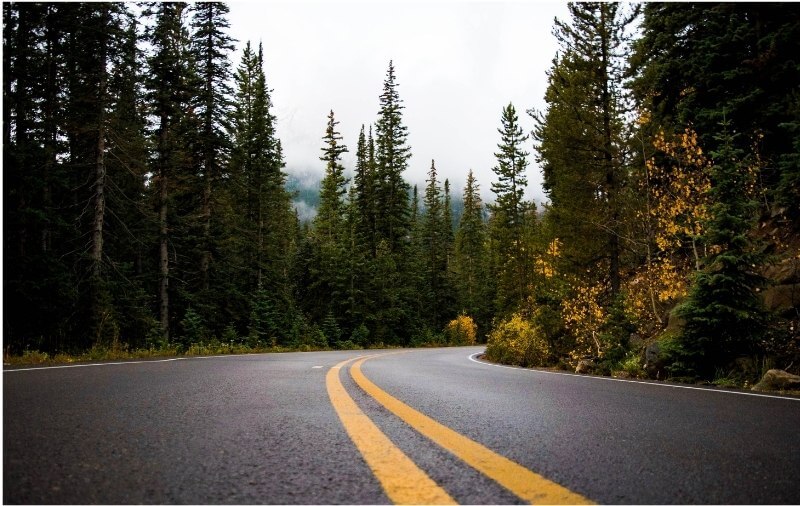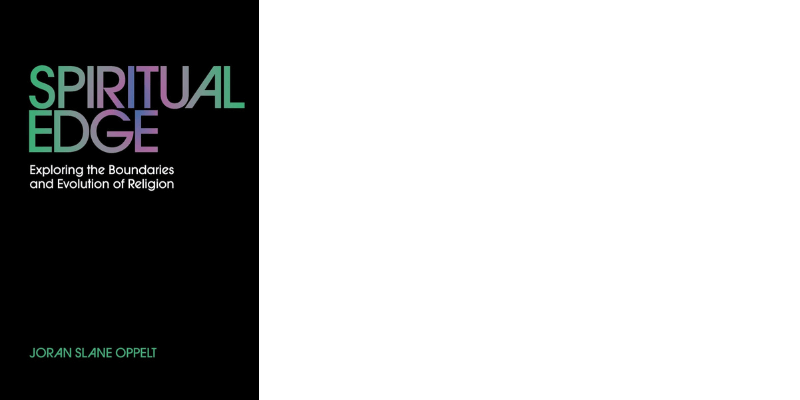Find Your Edge: Rethink Your Spirituality
“Let us never affirm that thought itself is dangerous.”
— Joran Slane Oppelt, Spiritual Edge

What Is Spiritual Edge?
Spiritual Edge: Exploring the Boundaries and Evolution of Religion is not your typical theology book. It is a collection of essays, prayers, lectures, and reflections by Joran Slane Oppelt, a longtime interfaith leader. Oppelt compiled his writings and speeches into this book as an invitation to a new (and older) generation to continue thinking about their spirituality instead of assuming it’s all been figured out already.
Some of the concepts in the book didn’t resonate with me. But others made me pause on the page, set the book down, and think about them a bit.
Whether you’re seeking new spiritual practices, reconsidering your faith, or simply wondering how to make sense of spirituality in your current place and time, this book meets you at the edge—where growth can flourish.
~ * ~
Key Themes That Stuck With Me
- Identity and Belonging
A “spiritual edge” may be thought of in more than one way. It’s where labels become too small and a deeper self begins to emerge.
“The first way we might think of Spiritual Edge might be the edges between those names that we have put on ourselves or have had put on us by others.
“The second way is by imagining ourselves standing on a precipice — our toes dangling over a cliff and not knowing what comes next.
“The third idea is that the word “edge,” in English, can sometimes mean advantage.”
- Tools Over Dogma
Oppelt argues for a wide approach to spiritual practice—one that uses the full toolbox, not just one inherited framework.
“I don’t know about you, but I don’t want just one tool. I don’t want just one solution. I want all of these solutions to be accessible and to apply them through spiritual practice.”

- Interspirituality and Innovation
Oppelt suggests in the book that spirituality must evolve alongside humanity. He challenges his readers/listeners to rethink worship, language, and community—making space for both reverence and reimagination.
“We need a new interspiritual order . . . that exists outside of the current (or failing) institutions and that encourages us to, in the words of philosopher Ken Wilber, ‘show up, wake up, and grow up.’ One that instructs us to lift one another as we climb.”
- Navigating Uncertainty
One of the book’s most comforting themes is its refusal to condemn doubt. Oppelt says that standing on an uncertain edge is part of the journey. Embrace it.
“When you are questioning your own abilities, your own edge, your own advantage, your own privilege, your ability to create more goodness, beauty, and truth in the world . . . I want you to remember two things: There is something more. And you are not alone.”

~ * ~
Why This Book Matters
I didn’t agree with every chapter—and I think Oppelt might be fine with that. This isn’t a blueprint; it’s a conversation starter. The questions it leaves you with are more powerful than the answers.
Oppelt’s writing is a mix of the poetic and the practical. I appreciate the openness to agree, disagree, or to simply not know yet. That’s the type of spiritual guidance that sounds most honest to me.
It’s okay to stand at the edge. You might just belong there.
~ * ~
Quotes That Stand Out to Me
“We must have compassion for both the elder and the naive young person whose heart and expression is still changing, still maturing. Indeed, we must be both of them.”
“There’s a difference between doing and showing up with presence and warmth. Yet, the path is deepened by practice. It is made richer by our showing up with repetition and commitment.”
“Knowing that the question is always part of the answer is wisdom.”
“Let us never affirm that thought itself is dangerous. We must exercise our intellect as part of our spiritual practice.”

My thanks to Speakeasy for the
review copy of Spiritual Edge


This sounds like an eye-opening, challenging read in a good way, Lisa. Thanks for sharing your impressions of this book. Have a blessed weekend!
This book was a bit challenging in a few ways, but still beneficial. Sometimes it’s the most challenging ones that I need the most. Hope your weekend is going well too!
Seems like this book contains lots to discuss and think about. I love the image of a full tool box too and being open to different ideas and edges. good review Lisa. Thanks for highlighting this one
Yes, this would be an interesting book to use for a book club. I’m sure I missed a lot of things just reading it by myself, but I still did find quite a few nuggets.
Do you think this may be a good read for an agnostic or seeker? Or better for those solid in their own beliefs and interested in broadening their understanding of spirituality?
Good question, Katie. I’d guess this book would be more useful to someone who is open to exploring (or at least tolerant of people who explore) versus someone who is convinced they already know what and why they practice as they do. He covers a broad range of spiritual/religious practices in his essays, with an underlying foundation in each of loving each other as best we can.